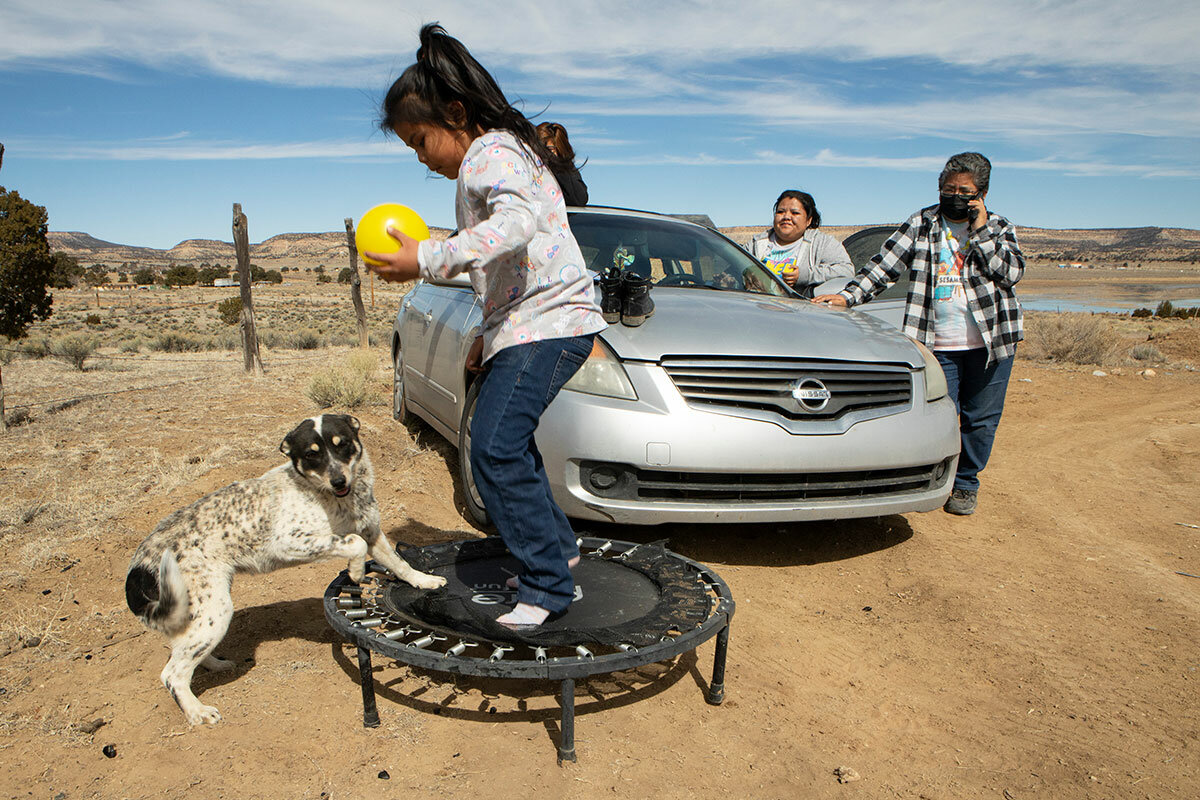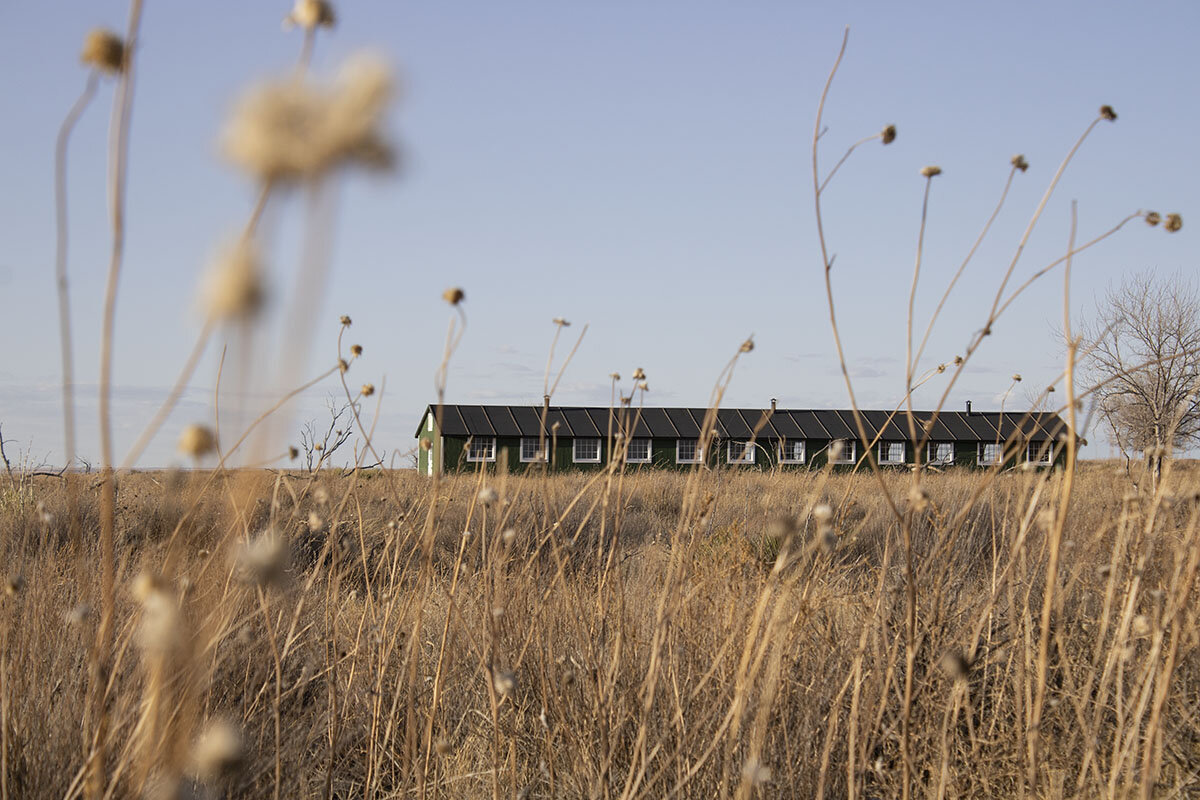Western solidarity with Ukraine will last as long as public sympathy holds. Vladimir Putin is betting democracies cannot withstand hardship. Can Europe and the U.S. prove him wrong?
Monitor Daily Podcast
- Follow us:
- Apple Podcasts
- Spotify
- RSS Feed
- Download
 Henry Gass
Henry Gass
I didn’t expect laughter.
But then, having spent my life surrounded by people with running water at home (including my home), I had no idea how a person would react to getting it for the first time.
This wasn’t my first time interviewing someone without this basic service. In South Texas in 2018, I’d been struck by how residents of colonias effectively shrugged their shoulders at the lack of running water. Context can be everything, and when you’ve never had something, why would you miss it? Or be angry over not having it?
Generations of Diné, as some members of the Navajo Nation refer to themselves, had grown used to living without. Ida Joe and her family had been buying drinking water from Walmart and renting hotel rooms so they could shower. They wanted to live on the reservation, where it’s remote and safe, and where they are close to their culture, she told me. A home with running water was just something you have to give up to do that.
Our conversation had, like many of my conversations on the reservation, bounced between moments of strength, moments of humor, and moments of sadness.
Two of her sisters died due to COVID-19 complications, she told me quietly. Her surviving sister is her twin, and they get mistaken for each other in town sometimes. When describing the Walmart trips, the hotel showers, her life without running water, she laughed – but a kind of soft, stop-start laugh that says, “No, but seriously.”
When she turned the tap on, she laughed again. It was a long, rippling, unbroken laugh; a laugh, almost, of disbelief. I didn’t know how she would react, but laughter seemed as logical as tears. I will never forget it.











